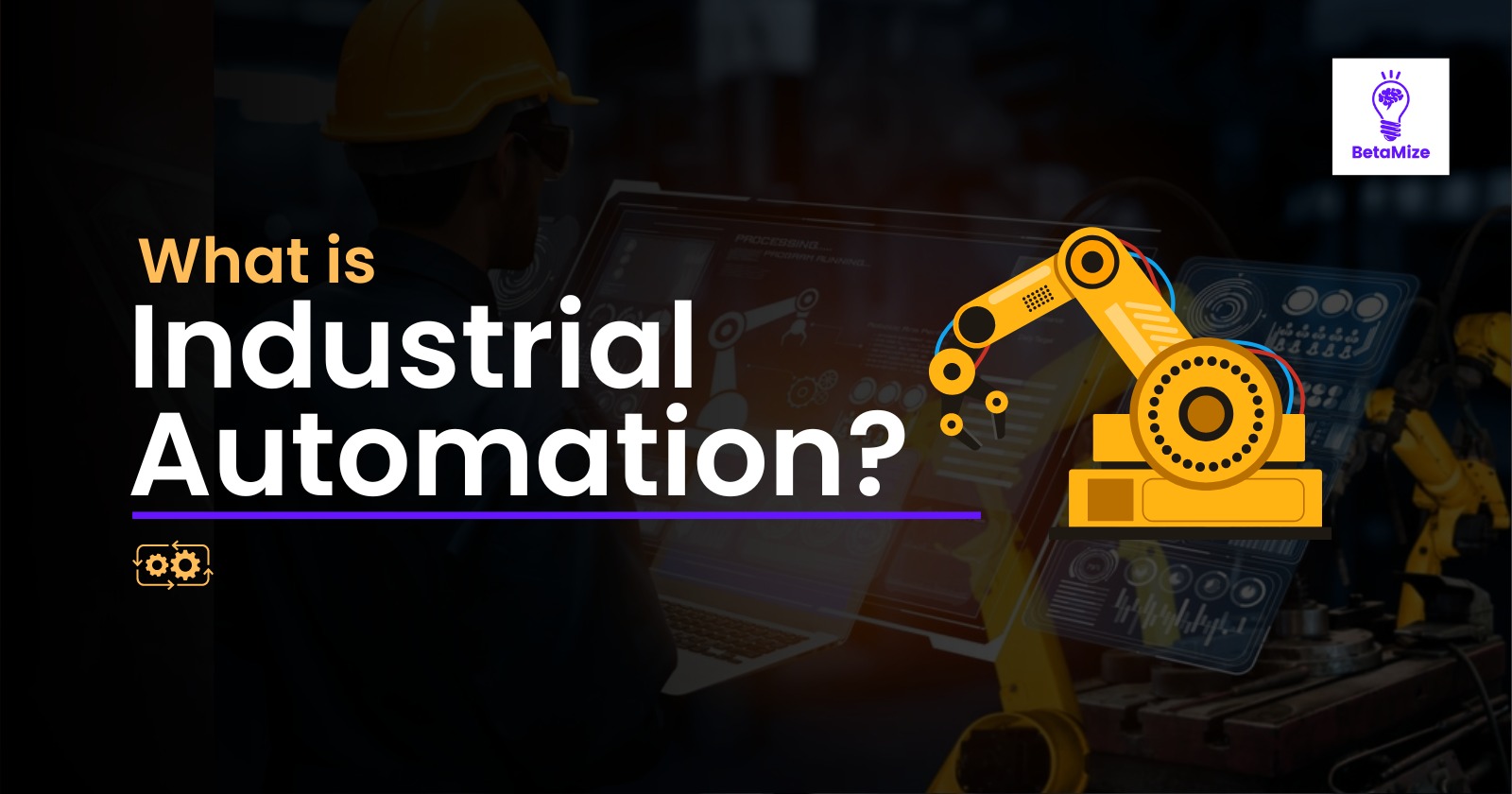What is Industrial Automation?
 BetaMize
BetaMize
Industrial automation refers to the use of control systems, such as computers, robots, and information technologies, to handle different processes and machinery in an industry to replace human intervention. It involves the integration of various automated systems to streamline production, increase efficiency, and enhance the overall productivity of manufacturing processes. In this article, we will delve into what industrial automation is, its benefits, types, key components, and its impact on modern industries.
Understanding Industrial Automation
Industrial automation is the implementation of advanced technologies to control and monitor industrial processes and machinery with minimal or no human intervention. This technology aims to optimize manufacturing processes, reduce costs, improve quality, and increase production speed. Automation systems are designed to perform repetitive tasks, handle complex operations, and ensure consistency and precision in industrial production.
Key Components of Industrial Automation
Sensors:
- Devices that detect physical changes in the environment, such as temperature, pressure, and motion, and convert them into signals for monitoring and control.
Controllers:
- Programmable logic controllers (PLCs) and industrial PCs that process input data from sensors and execute control algorithms to manage machinery and processes.
Actuators:
- Devices that convert control signals from controllers into mechanical motion, such as motors, valves, and hydraulic cylinders.
Human-Machine Interface (HMI):
- Interfaces that allow human operators to interact with the automated system, monitor performance, and make adjustments.
Communication Networks:
- Systems that facilitate the exchange of data between sensors, controllers, and other devices in the automation system.
Software:
- Programs and applications that enable the design, programming, and monitoring of automated systems, including SCADA (Supervisory Control and Data Acquisition) systems.
Types of Industrial Automation
Fixed Automation:
- Also known as hard automation, it involves the use of specialized equipment to perform specific tasks in a repetitive manner. It is commonly used in mass production environments where high volumes of products are manufactured.
Programmable Automation:
- Involves the use of programmable devices, such as PLCs, to control machinery and processes. It offers flexibility to reprogram equipment for different tasks, making it suitable for batch production.
Flexible Automation:
- Also known as soft automation, it uses computer-controlled systems to handle various tasks and adapt to changes in production requirements. It is ideal for environments where products are frequently changed.
Integrated Automation:
- Combines multiple automation systems and processes into a cohesive and interconnected network. It allows for seamless data exchange and coordination between different production stages.
Benefits of Industrial Automation
Increased Productivity:
- Automation systems can operate continuously without breaks, leading to higher production rates and increased output.
Improved Quality:
- Consistent and precise control of processes ensures high-quality products with minimal defects.
Cost Savings:
- Reduced labor costs, minimized material waste, and lower operational expenses contribute to significant cost savings.
Enhanced Safety:
- Automation reduces the need for human workers to perform hazardous tasks, improving workplace safety.
Greater Flexibility:
- Automated systems can be easily reprogrammed and adapted to changing production requirements, enhancing flexibility.
Data Collection and Analysis:
- Real-time data collection and analysis enable better decision-making and process optimization.
Impact of Industrial Automation on Modern Industries
Industrial automation has revolutionized various industries, including manufacturing, automotive, pharmaceuticals, food and beverage, and electronics. Its impact can be seen in:
Manufacturing Efficiency: Automated production lines have significantly increased manufacturing efficiency, allowing companies to produce goods faster and with higher precision.
Supply Chain Optimization: Automation has streamlined supply chain operations, improving inventory management, logistics, and distribution.
Innovation and Competitiveness: Automation has enabled companies to innovate and stay competitive by adopting advanced technologies and improving product quality.
Workforce Transformation: While automation reduces the need for manual labor, it also creates new opportunities for skilled workers to manage and maintain automated systems.
Conclusion
Industrial automation is a game-changer for modern industries, offering numerous benefits such as increased productivity, improved quality, cost savings, and enhanced safety. By leveraging advanced technologies and integrating automated systems, businesses can optimize their operations, stay competitive, and drive innovation.
Ready to transform your industrial operations? Discover how our advanced automation solutions can revolutionize your business. Contact Betamize today to learn more!
Subscribe to my newsletter
Read articles from BetaMize directly inside your inbox. Subscribe to the newsletter, and don't miss out.
Written by
